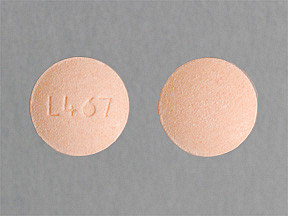ASPIRIN CHEWABLE - ORAL
PHONETIC PRONUNCIATION: (AS-pir-in)
COMMON BRAND NAME(S): Children's Aspirin
GENERIC NAME(S): aspirin
Uses
USES: Aspirin is used to reduce fever and relieve mild to moderate pain from conditions such as muscle aches, toothaches, common cold, and headaches. It may also be used to reduce pain and swelling in conditions such as arthritis. Aspirin is known as a salicylate and a nonsteroidal anti-inflammatory drug (NSAID). It works by blocking a certain natural substance in your body to reduce pain and swelling. Consult your doctor before giving this drug to a child younger than 12 years. It is very important to keep this and all medication out of the reach of children. Aspirin is a common cause of poisoning in children. (See also Overdose section.) Your doctor may direct you to take a low dose of aspirin to prevent blood clots. This effect reduces the risk of stroke and heart attack. If you have recently had surgery on clogged arteries (such as bypass surgery, carotid endarterectomy, coronary stent), your doctor may direct you to use aspirin in low doses as a "blood thinner" to prevent blood clots. Aspirin prevents blood clots by stopping certain blood cells (platelets) from clumping together.
How to use ASPIRIN CHEWABLE - ORAL
HOW TO USE: If you are taking this medication for self-treatment, follow all directions on the product package. If you are uncertain about any of the information, consult your doctor or pharmacist. If your doctor has directed you to take this medication, take it exactly as prescribed. Chew the tablet thoroughly before swallowing. This medication may also be crushed or swallowed whole. If stomach upset occurs while you are taking this medication, you may take it with food or milk. The dosage and length of treatment are based on your medical condition and response to treatment. Read the product label to find recommendations on how many tablets you can take in a 24-hour period and how long you may self-treat before seeking medical advice. Do not take more medication or take it for longer than recommended unless directed by your doctor. Use the smallest effective dose. Consult your doctor or pharmacist if you have any questions. If you are taking this medication for self-treatment of headache, seek immediate medical attention if you also have slurred speech, weakness on one side of the body, or sudden vision changes. Before using this drug, consult a doctor or pharmacist if you have headaches caused by head injury, coughing, or bending, or if you have a headache with persistent/severe vomiting, fever, and stiff neck. These may be signs of serious medical conditions. If you are taking this medication as needed (not on a regular schedule), remember that pain medications work best if they are used as the first signs of pain occur. If you wait until the pain has worsened, the medicine may not work as well. You should not take this medication for self-treatment of pain for longer than 10 days. You should not use this drug to self-treat a fever that lasts longer than 3 days. In these cases, consult a doctor because you may have a more serious condition. Tell your doctor promptly if you develop ringing in the ears or difficulty hearing. If your condition persists or worsens (such as new or unusual symptoms, redness/swelling of the painful area, pain/fever that does not go away or gets worse) or if you think you may have a serious medical problem, tell your doctor promptly.
Side Effects
Precautions
Interactions
Overdose
Images

- color
- light orange
- shape
- round
- imprint
- L467
Reviews
Faq for ASPIRIN CHEWABLE - ORAL
Aspirin Chewable is primarily used to relieve pain, reduce fever, and treat mild to moderate symptoms of arthritis.
It is recommended to chew or crush the tablet before swallowing it with water. Follow the dosage instructions provided by your healthcare professional.
Aspirin Chewable should not be given to children or teenagers who have or are recovering from chickenpox or flu-like symptoms, as it may increase the risk of Reye's syndrome.
Common side effects may include heartburn, upset stomach, nausea, and temporary ringing in the ears. If any severe side effects occur, seek medical attention immediately.
It is essential to inform your healthcare provider about all the medications you are currently taking, including over-the-counter drugs, supplements, and herbal remedies, as there could be potential interactions.
It is crucial to consult with your doctor before taking Aspirin Chewable if you are pregnant or planning to become pregnant, as its use may have certain risks.
Aspirin Chewable may be prescribed as a preventive measure for individuals at high risk of heart attacks or strokes. However, it is important to consult a healthcare professional for personalized advice.
The duration of usage will vary depending on your condition. Always follow the instructions provided by your doctor or the packaging.
It is generally advisable to avoid consuming alcohol while taking Aspirin Chewable, as it may increase the risk of stomach bleeding or other adverse effects.
Disclaimer
IMPORTANT: HOW TO USE THIS INFORMATION: This is a summary and does NOT have all possible information about this product. This information does not assure that this product is safe, effective, or appropriate for you. This information is not individual medical advice and does not substitute for the advice of your health care professional. Always ask your health care professional for complete information about this product and your specific health needs.

No Reviews Yet